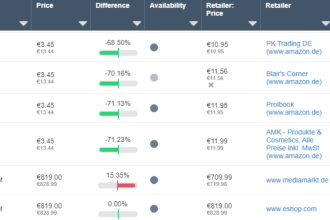The term “home loan tenure” indicates the period you pay back the loan amount, which typically ranges from 5 to 30 years. Choosing a tenure period reduces the installment amount (EMI), which results in higher total interest payments. Opting for a tenure period increases the EMIs but lowers your overall interest expenses.
Factors to consider when choosing your loan tenure
- Income and Budget: Assess your current financial situation. If you can comfortably afford higher EMIs, a short-term loan will help you save on interest. If higher payments are too difficult, a longer tenure may offer the breathing room you need.
- Future Financial Goals: Consider life events like children’s education or retirement. A longer loan tenure can provide financial flexibility to meet these obligations, while a shorter tenure may help you achieve a debt-free future sooner.
- Interest Rates: Compare home loan interest rates, as they play a significant role in the total cost of the loan. Decide whether a fixed or floating rate works better for your financial plans.
- Age and Life Stage: Younger individuals may prefer longer tenures for flexibility, whereas older individuals may opt for a shorter loan to clear the debt before retirement.
- Risk Tolerance: If you can manage the financial uncertainty of higher EMIs, a shorter tenure could suit you. On the other hand, a longer tenure with lower EMIs offers a cushion against future financial fluctuations.
Comparing short and long-term Home Loans
| Criteria | Short tenure | Long tenure |
| Monthly EMI | Higher | Lower |
| Total interest paid | Lower | Higher |
| Debt-free timeline | Shorter | Longer |
| Loan eligibility | May be lower | Generally higher |
| Financial flexibility | More flexibility post-loan | Flexibility during loan tenure |
| Tax benefit duration | Shorter | Longer |
Short-Term Home Loans
Benefits
- Lower Total Interest: Shorter loan tenures result in less total interest paid because you’re repaying the loan faster, which can be especially beneficial when interest rates are high.
- Debt-Free Sooner: Paying off your mortgage quickly can help you become debt-free earlier, freeing up money for other financial goals.
- Increased Savings Opportunities: Once the loan is paid off, you can redirect the money that would have gone toward EMIs into investments or savings, helping your wealth grow faster.
Drawbacks
- Higher EMIs: Short-term loans have higher EMIs, which can strain your monthly budget. It’s crucial to ensure that your income can comfortably cover these payments.
- Loan Eligibility: Lenders may hesitate to approve higher loan amounts if the EMI is too high relative to your income. Using a Home Loan Eligibility Calculator is a good idea to assess how different tenures affect your eligibility.
Long-Term Home Loans
Benefits
- Lower Monthly EMIs: A longer tenure reduces your monthly EMI, making the loan more manageable within your budget. This is particularly helpful for people who want to lower their monthly financial commitments.
- Higher Loan Eligibility: With lower EMIs, lenders may be more likely to approve higher loan amounts, allowing you to purchase a more expensive property or meet other financial requirements.
- Tax Benefits: Under Section 24(b) of the Income Tax Act, you can avail of tax deductions on the interest paid on home loans. A longer loan tenure means you can enjoy these tax benefits for a more extended period.
Drawbacks
- Higher Total Interest: The longer the loan tenure, the higher the total interest paid over the time, making the loan more expensive in the long run.
- Extended Debt: A long repayment period means you’ll remain in debt for a more extended period, which could limit your financial freedom and ability to invest in other opportunities or life goals.
Conclusion
Choosing between a short-term and long-term home loan depends on your financial situation, goals, and risk tolerance. While a shorter tenure allows you to pay off your loan quicker and save on interest, it requires higher monthly payments. A longer tenure provides lower EMIs but increases the total interest paid over the time. Consider your income, future aspirations, and financial flexibility before making this important decision. Ultimately, the right choice will depend on what aligns best with your current and future financial needs.














